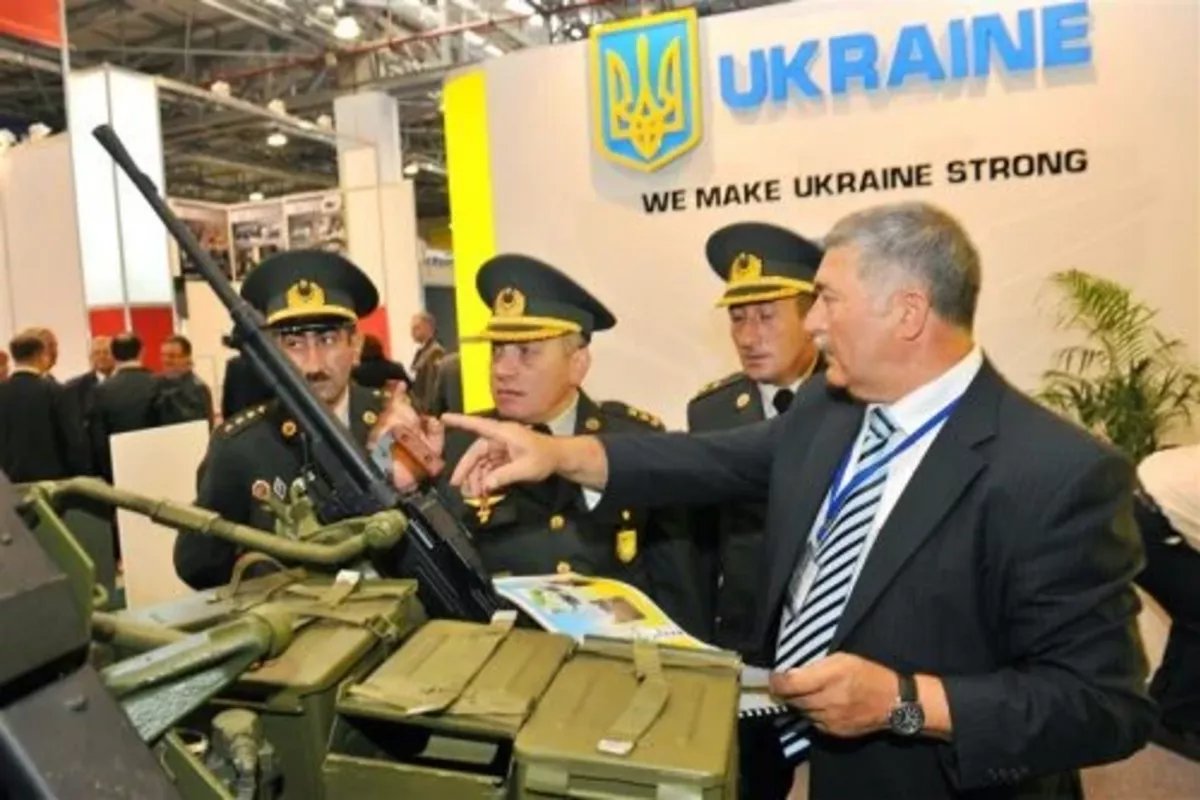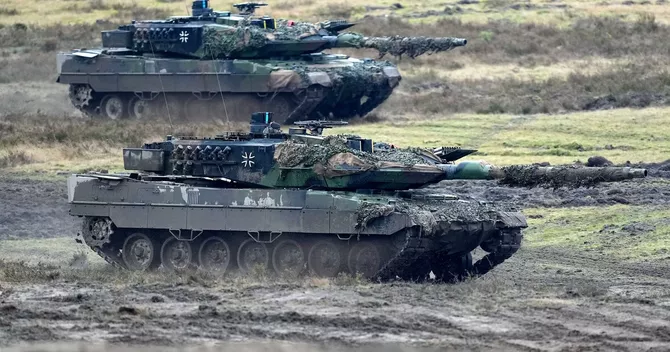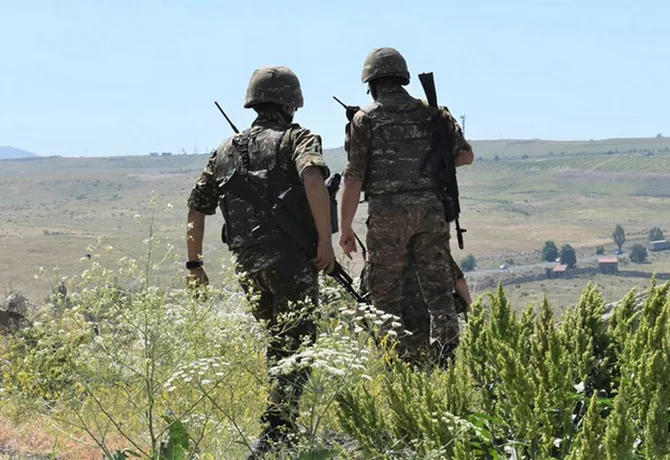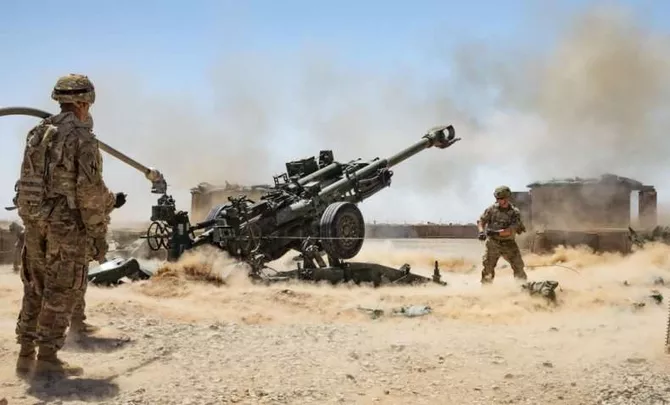
photo: Defence Blog
In recent days, Russian and Armenian Telegram channels and media outlets have circulated a purported court document from Ukraine, allegedly confirming arms contracts between Ukraine’s state-owned defense exporter Ukrspecexport and Azerbaijan.
According to this document, the deals were signed after Russia launched its full-scale invasion of Ukraine-causing predictable outrage in Russian media.
Rumors about Azerbaijan supplying weapons to Ukraine have surfaced before, often reignited whenever friction arises between Baku and Moscow. Back in June 2022, Russian and Armenian social media were flooded with claims that Azerbaijan had provided aerial bombs to Ukraine. The Russian Telegram channel Wings of War cited the Iraqi channel Sabereen News, which claimed that in April 2022, Azerbaijan had secretly shipped munitions to Ukrainian forces. The alleged route involved a Ukrainian airline, Meridian, transporting arms from Khartoum, Sudan, to Poland, and from there into Ukraine.
Based on these reports, Russian commentators concluded that Azerbaijan-and by extension Türkiye-was actively arming Ukraine with precision-guided munitions. Critics emphasized the contradiction between Baku’s stated neutrality and its alleged role in such a “dirty game,” asking rhetorically how many of these bombs had been used against Russian forces or the so-called Donetsk and Luhansk People’s Republics.
But in Azerbaijan, memories are still fresh of Russia’s long-standing and well-documented arms transfers to Armenia, including reportedly free deliveries worth up to $1 billion. This is no mere speculation. As Izvestia reported years ago, Armenia had been receiving weapons and ammunition from Russia at least until mid-1996-despite formal restrictions. The late General Lev Rokhlin, chair of the State Duma's Defense Committee, told parliament in 1997 that the total value of this transferred weaponry could have reached $1 billion.
At a closed parliamentary session, Rokhlin revealed that some of the arms deliveries to Armenia were so fresh they still had factory grease-and yet they were written off at scrap-metal prices.

photo: KyivPost
Adding to the confusion, Ukrainian sources also got involved. Around the same time Russian channels were reporting on the issue, Ukraine Weapons Tracker published photos allegedly showing Azerbaijani-made mortars in use by Ukrainian forces. Experts identified them as 20N5 82mm mortars, NATO-caliber weapons produced by Azerbaijan’s Ministry of Defense Industry. These mortars are designed for use at the company or battalion level and can inflict serious damage over distances greater than 5 kilometers.
Azerbaijan had previously showcased these mortars at international arms expos and officially exports them to over 30 countries.
The appearance of these images sparked skepticism. Baku quickly denied the claims, and many observers pointed out that-assuming the photos were genuine-the mortars could have entered Ukraine via third-party countries that legally purchased them. In today’s complex geopolitical climate, the possibility that some friendly country "shared" such weapons with Kyiv cannot be ruled out.
As for the supposed court document making the rounds in Russian media, it's nearly impossible to verify its authenticity from just a photo. The original source is unknown, and the whole affair has the markings of yet another disinformation attempt.
But regardless of the answers to these questions, one thing is clear: Azerbaijan has no reason to justify itself-especially not to Russia.
It is no secret that throughout the decades-long Karabakh conflict, Russia served as Armenia’s primary arms supplier. Even while formally participating in peace negotiations, Moscow supported Yerevan’s occupation policy through steady weapons transfers. This continued even during the 44-day war in 2020.
At the international conference “South Caucasus: Development and Cooperation” held at ADA University, Azerbaijani President Ilham Aliyev stated openly that weapons were delivered to Armenia from Russia via Kazakhstan, Turkmenistan, and Iran during the war:
“We traced the route-it originated in Rostov and Mozdok. We asked our Georgian friends to close their airspace, and they did. We also requested they block any ground transport of weapons from Russia to Armenia. Georgia shut both routes. Additionally, we sent letters to Caspian littoral states urging them to deny overflight rights to Russian cargo planes carrying weapons. Unfortunately, Kazakhstan, Turkmenistan, and Iran allowed these flights,” the president said.
Even Armenian officials have confirmed Russian arms deliveries during the war. Movses Hakobyan, former head of the Armenian Defense Ministry’s military control service, told journalists that Russia not only met Armenia’s demands but delivered weapons they “could not even dream of”-from the very first days of the conflict, even before the Armenian president contacted the Kremlin.

photo: Arka.am
After the war, Moscow quickly moved to modernize Armenia’s military, delaying the peace process and fueling a fresh arms race in the region.
Given this background, the indignation of Russian media outlets toward Baku seems misplaced-especially since no official statements have been made. In fact, Russian Foreign Ministry spokeswoman Maria Zakharova stated plainly that “arms deliveries are Russia’s internal matter.” By that logic, Azerbaijan has every right to decide who it trades with, based on its own national interests.
Moreover, Baku also has valid grievances toward Ukraine. Beyond its role in spreading unverified or politicized claims, Ukraine has itself failed to fulfill certain contractual obligations.
A notable example occurred in early November 2020, when reports emerged that Ukrainian President Volodymyr Zelensky had issued an informal order to suspend a defense contract between Ukrspecexport and Azerbaijan for the delivery of radar components for P-18 stations. According to ZN.UA, Zelensky gave the instruction orally about a month after the start of the Second Karabakh War. The deal did not involve lethal weapons, Azerbaijan was not under any UN embargo, and Kyiv had repeatedly declared its support for Azerbaijan’s territorial integrity.

photo: Reuters
Based on these facts, Ukraine had no legal or moral grounds to halt the contract. As one source told ZN.UA, continuing the defense-industrial partnership would have served as a meaningful gesture of strategic support from Kyiv to Baku-especially considering Ukraine's own history of territorial integrity violations.
According to insiders, pressure from Ukraine’s Armenian diaspora and then-Interior Minister Arsen Avakov played a role in the decision. So did influence from Western allies, many of whom sympathized with Armenia during the 44-day war.
As ZN.UA reported, Vice Prime Minister Oleg Urusky and Foreign Minister Dmytro Kuleba were orally informed of Zelensky’s order. Urusky, overseeing Ukraine’s defense sector, was expected to relay the instruction to the heads of Ukroboronprom and Ukrspecexport. But by late October, Zelensky learned-reportedly through Avakov-that the shipment had already gone out. A plane carrying the radar components had been sent to Azerbaijan, triggering a political scandal.
The entire episode remains murky, raising more questions than answers.
In the end, no one-not Russia, not Ukraine-has the moral authority to lecture Azerbaijan on its defense partnerships or geopolitical choices.
By Tural Heybatov
Share on social media
